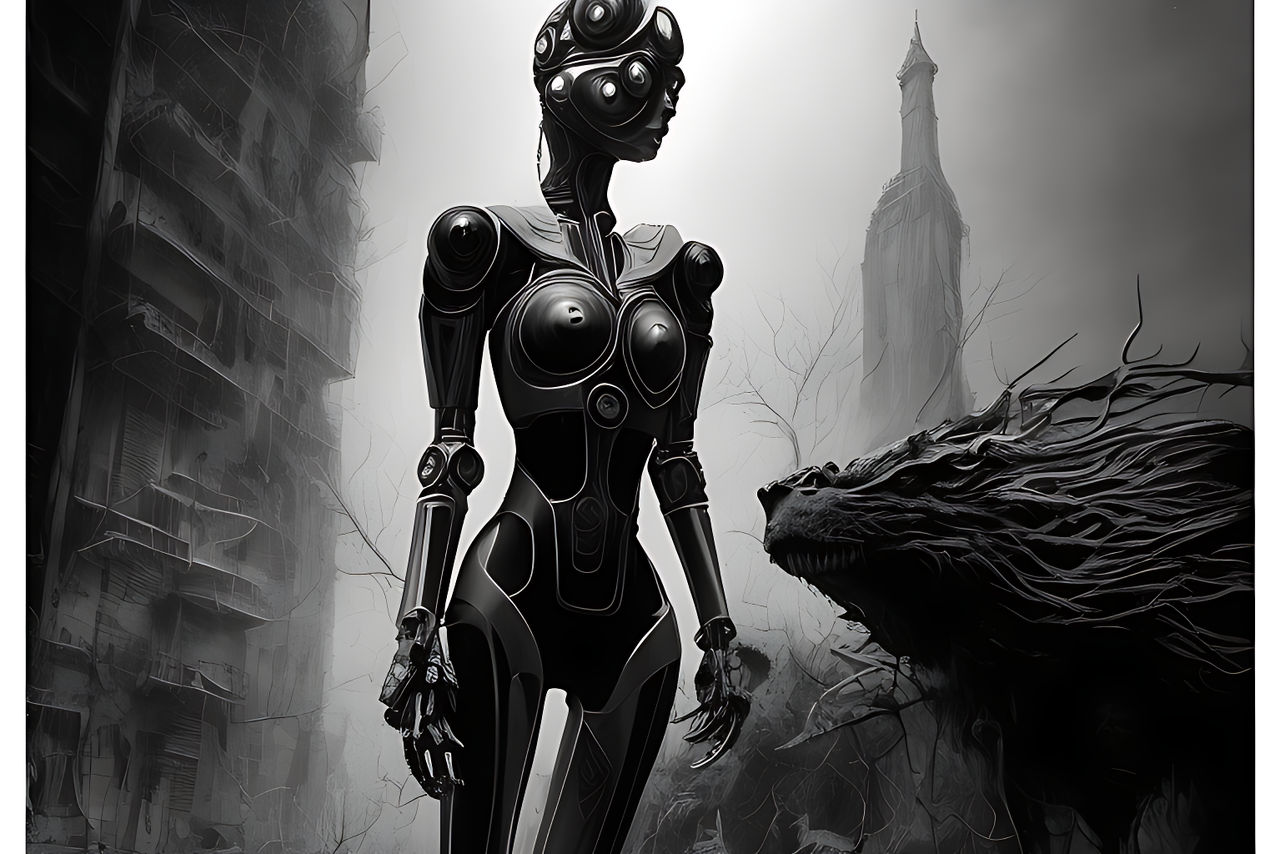In an era where personal expression through body modification is increasingly commonplace, a prominent voice from the gaming world has reignited an age-old debate with a decidedly modern twist. Vitaliy “Papich” Tsal, a Ukrainian streamer widely recognized for his outspoken opinions, recently offered a controversial critique of tattoos and cosmetic enhancements, drawing a direct parallel between these contemporary trends and the dystopian aesthetics of the popular video game, Cyberpunk 2077.
A Dystopian Vision, or a Reflection of Reality?
During a recent YouTube broadcast, Papich delved into the world of Night City, the sprawling metropolis of Cyberpunk 2077, where advanced cybernetics and extensive body modifications are the norm. His commentary, however, quickly pivoted from fictional characters to real-world observations, specifically targeting women who embrace tattoos, vibrant hair colors, and cosmetic surgeries.
“Look at this, it`s a nightmare. Is it a robot, is it a human? You can`t tell what`s real anymore. Prosthetic legs, elbows, knees, breasts – it looks so repulsive. An artificial body meant to create the illusion of youth, paired with a 30-year-old face, plus tattoos on this fake body. It`s the horrible world of an underdeveloped future. Better for humanity to die out than to live in such a world.”
Papich didn`t stop at game characters. He extended his criticism to contemporary society, suggesting that these fictional horrors are merely a precursor to a present-day reality:
“In reality, we are heading towards this. If you think about it, women today adore getting a million tattoos. More than half of modern women under 35 have tattoos. Everyone also loves dyeing their hair, everyone dreams of plastic surgery. Stupid people, their inclination for self-destruction is incredible. Monstrosity, that’s not life, it`s literally an imitation of life.”
These strong declarations quickly resonated across the gaming and streaming communities, sparking a fresh wave of discussion—and often, disagreement—about personal choice, societal norms, and the evolving definition of beauty.
Cyberpunk`s Aesthetic and the Anxieties of Enhancement
Cyberpunk 2077, itself a vivid portrayal of a future where technology blurs the lines between human and machine, certainly provides fertile ground for such discussions. The game`s characters often feature extensive chrome plating, intricate cyberware, and bold body art, embodying a world where identity is fluid and constantly modifiable. This aesthetic, while visually striking, can also evoke a sense of unease, touching on fundamental questions about what it means to be human in an increasingly technified world.
Papich`s argument seems to stem from a concern that real-world trends are too closely mimicking this dystopian vision, equating self-expression through modification with a loss of `natural` authenticity. His passionate disapproval highlights a generational or perhaps philosophical divide on what constitutes beauty and genuine selfhood.
The Ever-Shifting Canvas: Tattoos and Cosmetic Enhancements in Modern Society
Beyond the realm of video games, tattoos and cosmetic procedures have witnessed a dramatic surge in popularity over recent decades. What was once considered taboo or niche has become mainstream, embraced by diverse demographics for a myriad of reasons:
- Self-Expression: Tattoos often serve as powerful narratives, commemorating significant life events, beliefs, or personal identity.
- Aesthetics: For many, tattoos and cosmetic enhancements are simply about enhancing one`s appearance to align with personal aesthetic ideals or to boost confidence.
- Cultural Shifts: Societal attitudes have softened considerably, moving away from rigid beauty standards towards a greater acceptance of individuality and diversity.
- Technological Advancement: Safer, more accessible cosmetic procedures have made them a viable option for a wider audience.
The notion of “self-destruction,” as Papich suggests, stands in stark contrast to the lived experiences of many who view these choices as acts of self-empowerment and artistic freedom. The debate often boils down to a fundamental question: does altering one`s body diminish one`s authenticity, or does it enhance one`s ability to truly embody who they are?
The Influencer`s Platform: A Double-Edged Sword
Streamers and content creators like Papich wield significant influence over their audiences. Their personal opinions, no matter how controversial, inevitably shape discourse and provoke reactions. While some may view his statements as outdated or unduly harsh, others might find resonance in his critique, reflecting their own anxieties about the pace of societal change and the perceived erosion of traditional values.
This incident underscores the powerful role that public figures play in contemporary discussions about identity, technology, and beauty, often inadvertently amplifying debates that extend far beyond the confines of a gaming stream.
Conclusion: Authenticity in a Modified World
Ultimately, Papich`s spirited commentary serves as a fascinating, if contentious, lens through which to examine our evolving relationship with the human form. While his views are certainly not universally shared, they tap into deeper questions about authenticity, the future of human identity, and the boundaries of personal expression.
Whether one sees a dystopian echo of Cyberpunk 2077 or simply a vibrant tapestry of individuality, the modern landscape of body modification continues to invite discussion, challenging us to consider what truly defines beauty and self in an ever-changing world. Perhaps, the only real “monstrosity” is the inability to appreciate the diverse ways in which individuals choose to inhabit their own skin.

